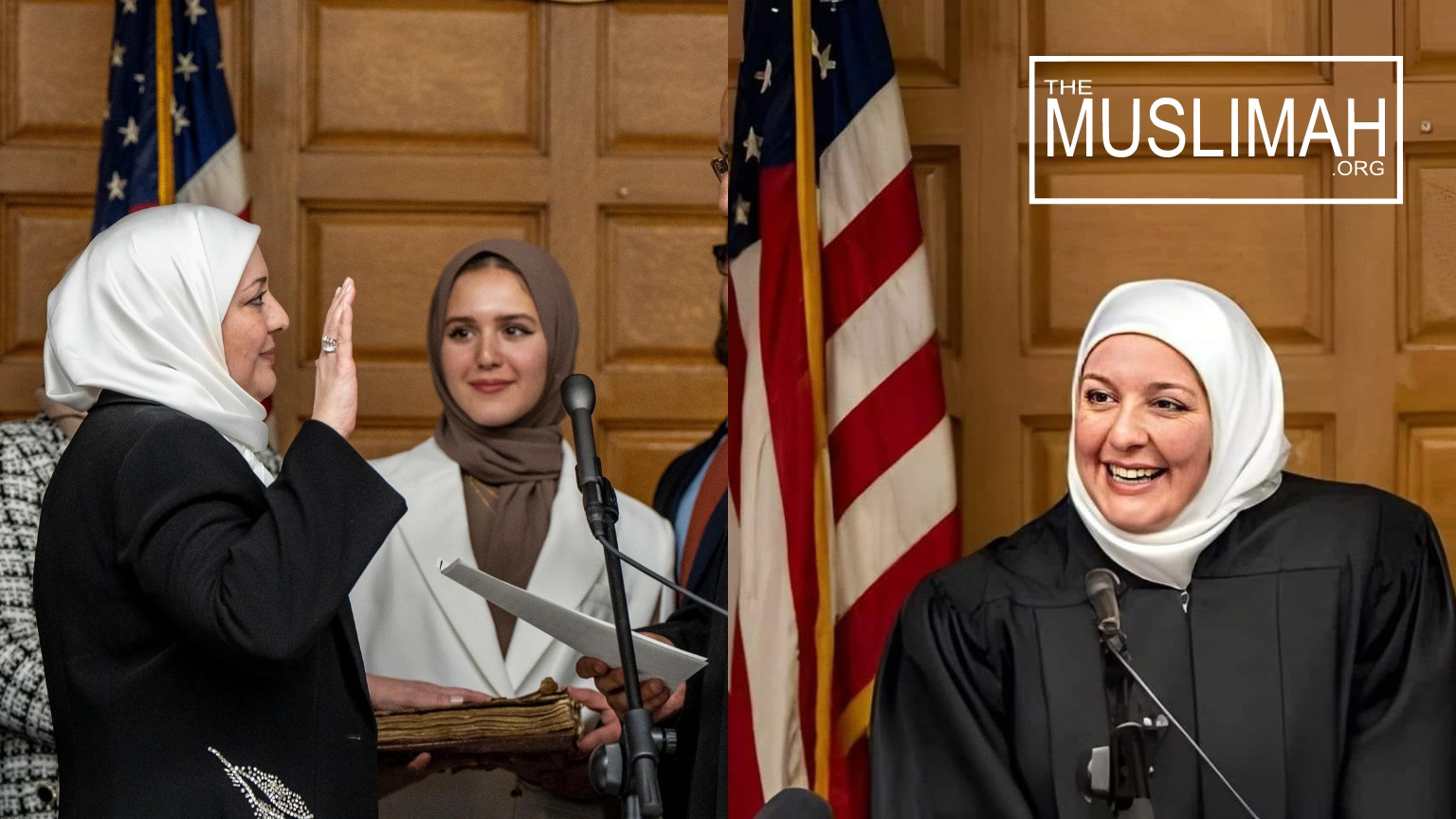Nadia Kahf has become the first hijab-wearing Muslim woman judge in the USA. Kahf took her oath on Holy Quran inherited from her grandmother. She has been appointed to the superior court in New Jersey, in an event that sparked international headlines describing her as a trailblazer.

That barrier was broken again the very next day when Dalya Youssef, a family law attorney who also wears the Hijab (Islamic Headscarf), was sworn into the Superior Court bench in Somerset County.
For Muslim women, who have long faced harmful stereotypes about their religion and their role in it, having two women who outwardly show their faith in such prominent positions is deeply meaningful.
“It brings a lot of pride and a lot of inspiration to my heart knowing they can practice their faith openly without compromise and continue to serve our community in such an honourable way,” said Rana Sabagh, a social services manager at a Paterson mosque, calling it a “proud and historic moment.”
Nadia Kahf and Dalya Youssef were not the first Muslim women to become state judges. Sharifa Salaam and Kalimah Ahmad serve as Superior Court judges in Essex and Hudson counties, respectively. Three Muslim men also are state judges, Sohail Mohammed in Passaic County, Rahat Babar in Mercer County, and Hany Mawla in the Appellate Division.

Earlier this year Governor Phil Murphy nominated 14 attorneys for Superior Court judge. Attorney Nadia Kahf was nominated to be the Passaic County Superior Court judge. While New Jersey’s Senate Judiciary Committee interviewed 10 out of the 14 nominees, Mrs. Kahf was not among them. Mrs. Kahf’s long-awaited appointment has been held up by State Senator Kristin Corrado of the 40th Legislative District.

But the images of Kahf, wearing a hijab, swearing her oath on the Quran and getting a standing ovation, struck a chord with the public and were widely shared on social media. The swearing-in was in front of her children, parents and husband and a crowd of supporters so large some were in overflow rooms. For her oath, she used a vintage Quran that had been handwritten by her great-grandmother in the 1880s.

“I’m very proud to represent the Muslim and Arab communities of New Jersey and the United States,” Kahf said at the swearing-in ceremony. “I want the younger generation to see that they can practice their religion without fear. That they can be who they are. Diversity is our strength. It is not our weakness.”
Youssef was sworn in the next day at the Somerset County courthouse, while a larger, official swearing-in ceremony is being planned in her honour in several weeks.
The elevation of these women to the New Jersey Superior Court comes as some women have faced prejudice and measures to restrict the use of the hijab in France and India.

Common stereotypes are rooted in falsehoods, said Dalia Fahmy, a professor of political science at Long Island University. In the U.S., Muslim women are the second-most highly educated religious minority group, said Fahmy. In the past two elections, nearly 200 Muslim women ran for office, with many winning their elections, Fahmy added. In New Jersey, the first two Muslims to serve in the state Legislature, Shama Haider and Sadaf Jaffer, are female.
Youssef was a founding member and past president of the New Jersey Muslim Lawyers Association. As supervising attorney at Central Jersey Legal Services, a nonprofit law firm, she provided legal assistance to low-income individuals.
Youssef is also a member of the Supreme Court Committee on Women in the Courts and the New Jersey State Bar Association’s Diversity and Pro Bono committees. She is also on the board of the Rutgers Center for Race, Rights and Security.
Her nomination was delayed by Senator Kristen Corrado for more than a year despite being nominated. Kahf’s approval came earlier this month, six months after objections were removed.

“Muslim women throughout history have achieved the highest levels of occupation and power,” Fahy said. “That’s not reflected in what we see in popular culture and popular media.”
In New Jersey, the communities that Kahf and Youssef call home have known these two women as leaders, since long before they became judges.

Kahf, a family law and immigration attorney in Haledon, has served as chair of the New Jersey chapter of the Council on American-Islamic Relations, a Muslim civil rights organization. She is also chairwoman of the Islamic Center of Passaic County, one of the largest mosques in the state.
Kahf, who came to the U.S. from Syria at age 2, also served as legal adviser to Wafa House, a nonprofit domestic violence and social services agency based in Clifton.

State senators in New Jersey can use “senatorial courtesy,” an unwritten tradition that allows a lawmaker representing the hometown of a nominee to stall or block their consideration.
This delay has raised concerns among those who say Mrs. Kahf, who is an American Muslim, would bring a welcome dose of diversity to the state judiciary.
It’s time we advocate for Attorney Kahf and pressure Senator Corrado to do the right thing and make history by appointing the very first hijabi to the New Jersey Superior Court!










